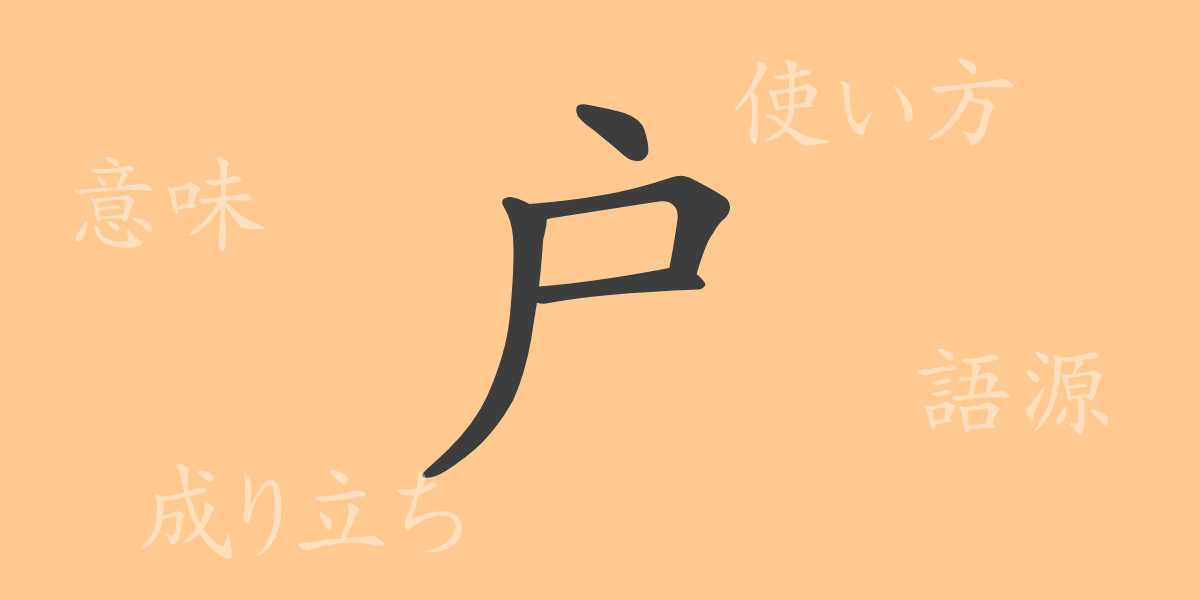Japanese written culture is profound, with each kanji character weaving rich stories behind the words. The commonly used kanji “戸(と)” is no exception, being an important character deeply rooted in our daily lives. This article delves into the origins, meanings, uses, idiomatic expressions, and proverbs involving the kanji “戸(と),” revealing its full scope and significance.
Origins of 戸(と) (Etymology)
The kanji “戸(と)” originates from ancient Chinese pictographs. Initially, it depicted a house with an enclosed space and a vertical bar representing a door, symbolizing the entrance or gate of a house. Over time, the shape evolved into its current form, but its fundamental meaning has remained unchanged.
Meanings and Uses of 戸(と)
The kanji “戸(と)” generally refers to the entrance or gate of a house. However, it also symbolizes a family or household and is used to denote a specific range or area. In legal terminology, it appears in words like “戸籍(こせき),” referring to family registration and personal identification records.
Readings, Stroke Count, and Radical of 戸(と)
The kanji “戸(と)” is straightforward in its readings and structure, reflecting its frequent use in daily life.
- Readings: The On’yomi (音読み) is “コ(こ),” and the Kun’yomi (訓読み) is “と(to).”
- Stroke count: It has 4 strokes.
- Radical: The radical is “戸部(とへん),” indicating it belongs to the “door” category.
Idioms, Phrases, and Proverbs Using 戸(と)
There are numerous idioms, phrases, and proverbs featuring the kanji “戸(と),” reflecting its importance in Japanese culture and daily life.
- 戸を開ける(とをあける): To start something new or challenge new possibilities.
- 戸締り(とじまり): Securing the doors of a house, meaning to act with caution.
- 戸惑う(とまどう): Literally being perplexed in front of a door, meaning to be unsure of how to act.
These expressions are widely used in everyday conversation, literature, and business contexts.
Conclusion About 戸(と)
The kanji “戸(と)” is deeply embedded in Japanese language and culture, far beyond its simple shape. The various uses and idiomatic expressions stemming from the basic meaning of a house entrance are essential in our lives and emotional expressions. By understanding the history and meanings behind “戸(と),” our appreciation and comprehension of the language are enriched.

























